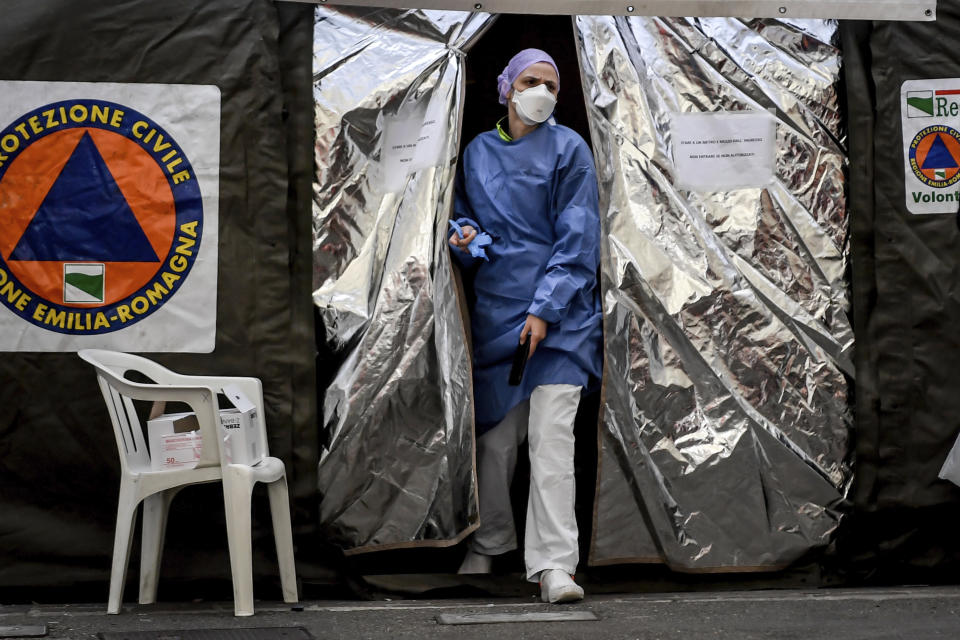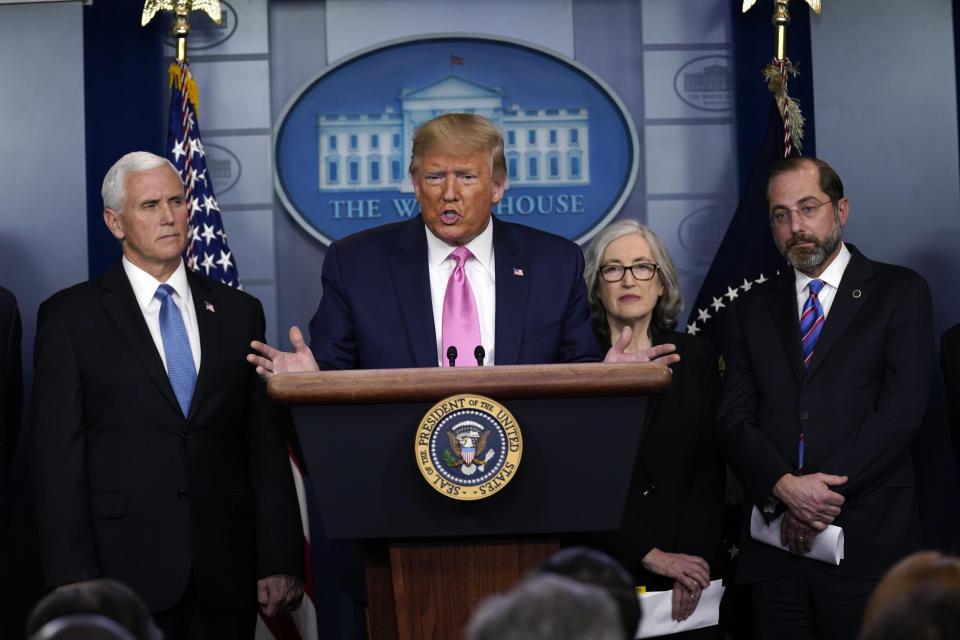Coronavirus impact on presidential race light so far
The coronavirus has rattled financial markets and has the attention of the nation, but so far has yet to make much of a dent in the presidential campaign.
Democratic candidates did talk about the illness in Tuesday night’s debate, critiquing President Trump’s response to the emergency.
But the campaigns themselves are remaining tight-lipped about whether they are making any plans for how a full-blown pandemic in the U.S. would affect candidate travel, large rallies and even voter turnout.
“Like any organization, we take the CDC recommendations seriously. We are developing staff and office policies and will continue to monitor the situation,” Anita Dunn, a senior adviser to Joe Biden, told Yahoo News.
Only one other campaign contacted by Yahoo News responded to questions about what contingency plans they might be making for a scenario in which schools are closed, as the CDC has said might be necessary, or if large public events are canceled, as has happened in China, South Korea and Italy.
“We are continuing our travel and town hall schedule,” said Chris Meagher, a spokesperson for Pete Buttigieg.

Terry Sullivan, who ran the 2016 presidential campaign of Sen. Marco Rubio, R-Fla., told Yahoo News that most campaigns are “just trying to get through the week.”
“Variables like that probably aren’t even on their radar,” Sullivan said.
A spokeswoman for Sen. Elizabeth Warren declined to comment on how a severe or medium-scale outbreak might affect the campaign, and pointed to Warren’s proposals for how to respond to the outbreak and, more broadly, how to do a better job of preparing for such situations.
The candidates themselves agree, however, that Trump’s leadership on the issue has been lacking.
“Instead of building capacity to combat these problems, Donald Trump has deprioritized global health security and risked putting us on our heels in a crisis,” Warren wrote in a Medium post outlining her plans for “Preventing, Containing, and Treating Infectious Disease Outbreaks at Home and Abroad.”
In the debate, former New York City Mayor Michael Bloomberg faulted Trump for weakening the government’s capabilities over the past few years.
“What’s really happening here is the president fired the pandemic specialists in this country two years ago, so there’s nobody here to figure out what the hell we should be doing, and he’s defunded Centers for Disease Control, CDC, so we don’t have the organization we need,” Bloomberg said. “This is a very serious thing, as you see, the stock market’s falling apart, because people are really worried, and they should be.”

During the debate, Biden pointed to the work the Obama administration did when he was vice president during the outbreak of Ebola in West Africa in 2014 and 2015.
“I was part of making sure that pandemic did not get to the United States, saved millions of lives,” Biden said. “We set up, I helped set up, that office in the president’s office on diseases that are pandemic diseases. We increased the budget of the CDC. We increased the NIH budget.”
“Our president today, and he’s wiped all that out,” Biden said. “We did it. We stopped it.”
There are also no clear signs that the virus has had an impact on voter behavior, and it may be too soon to tell. If a large number of voters were to become uncomfortable about going to the polls on Election Day, that might produce an uptick in early voting. Early voting numbers are up in Virginia ahead of their March 3 primary, but that’s likely just the result of a Democratic electorate that is unusually energized to oppose Trump.
In California, mail-in ballots began arriving at the homes of voters in early February. But early voting numbers are mixed, according to Paul Mitchell, vice president of Political Data.
The raw early vote numbers are up, Mitchell told Yahoo News in an email, but that’s because the “total vote-by-mail universe has skyrocketed since 2016, up from 10 million to 16 million.”
But the total percentage of early votes is down from 2016, he said. And in addition, “there are some people holding on to their ballots” who in the past have voted by mail, Mitchell said in a podcast interview with the Sacramento Bee.
“They’re Democrats who vote in every primary and they’re older and they’re turning in their ballots at a lower rate than in previous primaries,” he said. “I think this is a population of voters that are going to vote. They’re just voting later because they’re trying to figure out which candidates are going to be viable … what’s going to happen in South Carolina.”
_____
Read more from Yahoo News:





